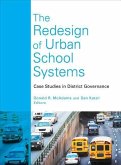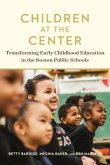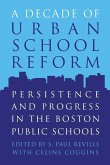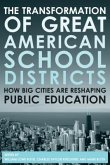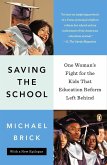The Way We Do School offers an in-depth profile of the nation's most ambitious community school initiative: transforming all eighty-six district schools in Oakland, California into community schools in order to better meet the academic and personal needs of all students. Based on six years of research, the authors detail the implementation of the effort at both the district and school levels and highlight how the initiative's "whole-child approach" has resulted in positive outcomes for students and for the district. Oakland's full-service community school initiative provides many valuable lessons for policy makers and practitioners interested in launching a district-led full-service community schools system. "The Way We Do School offers a hopeful story about education reform--one in which leadership and vision meet need and opportunity. The authors carefully document how the Oakland Unified School District effected true systemic change through the full-service community schools strategy and, in the process, provide a detailed blueprint for other cities and districts." --Jane Quinn, former director, Children's Aid National Center for Community Schools "A rare look into a sustained 10-year districtwide reform, The Way We Do School is a rich and practical story of collective problem solving. As the community schools movement gains momentum across the country, Oakland's experience implementing a whole-child approach to education is both instructive and timely." --Karen Hunter Quartz, director, UCLA Center for Community Schooling "This insightful book offers guidance to leaders and advocates who see community schools as vital to helping students learn and thrive and for sustaining the role of community in our public schools." --Martin Blank, founding director, Coalition for Community Schools, former president, Institute for Educational Leadership Milbrey McLaughlin is the David Jacks Professor Emerita of Education and Public Policy at Stanford University and the founding director of the John W. Gardner Center for Youth and Their Communities. Kendra Fehrer is a senior research associate at the John W. Gardner Center for Youth and Their Communities at Stanford. Jacob Leos-Urbel is a senior analyst at Tipping Point Community.
Hinweis: Dieser Artikel kann nur an eine deutsche Lieferadresse ausgeliefert werden.
Hinweis: Dieser Artikel kann nur an eine deutsche Lieferadresse ausgeliefert werden.


